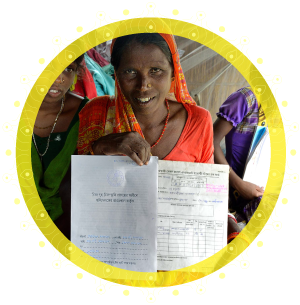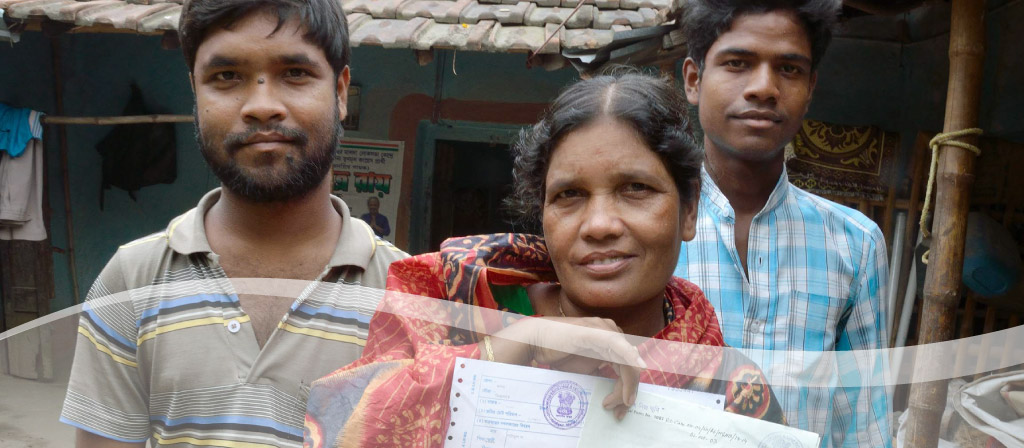
Impact 2014
laws and policies changed:
6
people who stand to gain improved land rights from these policy changes:
691.4 million
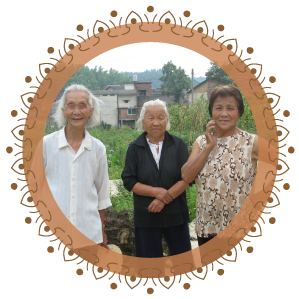
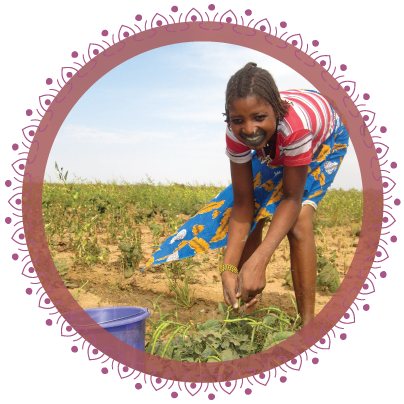
Policy makers and service providers who received land-related legal awareness and training:
10,360
Rural poor individuals who received land-related legal awareness training:
31,021
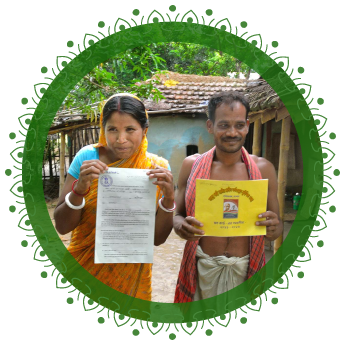
Men and women who gained secure rights to land:
2.23 million
Focus on Personal Impact:

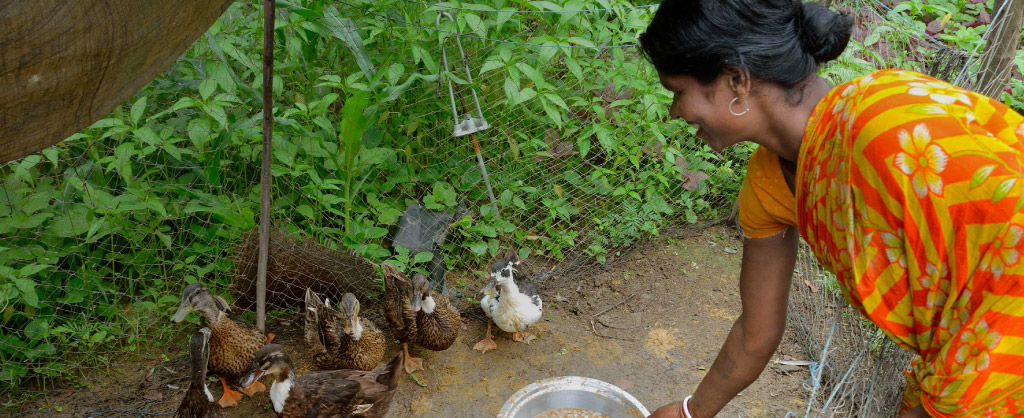
Roopkumar and Anita
Growing Hope on their Land
Hope grows on Roopkumar's and Anita’s new micro-plot of land.
Anita, 25 and a mother of three, grew up without schooling, without a home, without hope. Her landless parents never had enough money to send her to school and married her off when she was 16.
Though she desperately wanted her daughters to get the education she was denied, she feared that circumstances would force her hand.
Anita and her husband lived on land owned by a powerful local landlord. They worked in his fields in return for housing and a small daily wage. The landlord forbade them from working for other local landowners. And the family, despite their labors, never seemed to have enough money to meet even their most basic needs.
Roopkumar began migrating to other states where he could earn a higher wage, but he worried about the safety of Anita and the children.
In February, Anita and Roopkumar became the owner of a micro-plot of land. Anita’s name is listed first on the land title.
“Now I have hope,” said Anita. “I have hope that my husband may come back home and stop migrating as there are improved employment opportunities here.”
“I have hope that I can support my daughters’ education,” she added. “I really want my daughters to be educated.”
She has resolved to keep her daughters in school through standard ten, the equivalent of 10th grade.
“The electric light helps my daughters to study even during the evening.”
“I have started nurturing so many dreams after getting this land.”
“I have hope that I can support my daughters' education. I really want my daughters to be educated.”
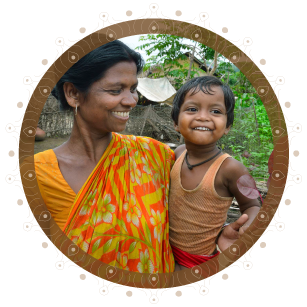
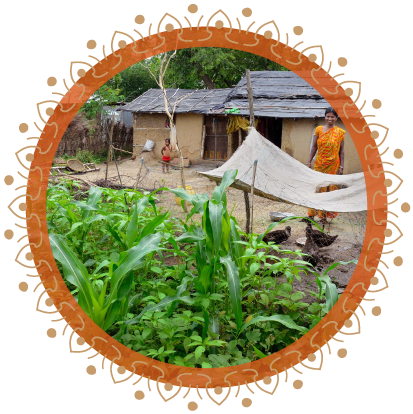
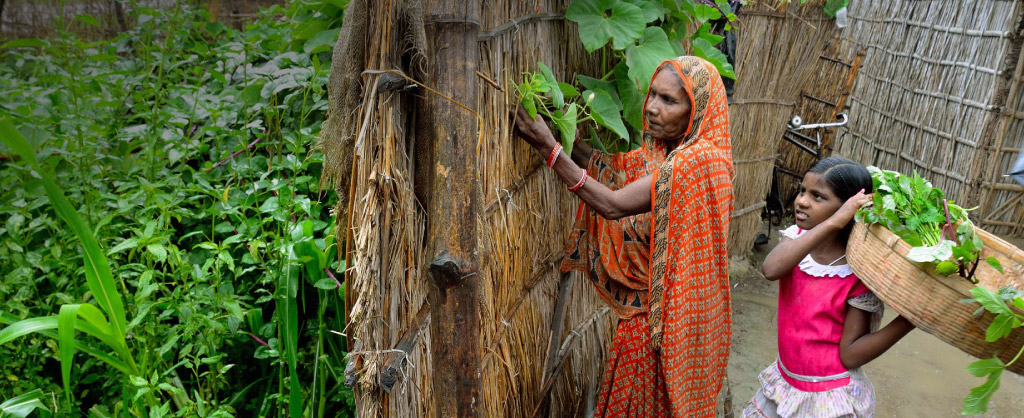
Pradip and Santolia
No Longer Afraid
Less than one year ago Santolia and Pradip and their granddaughter, Puja, were fundamentally powerless. The family was living in a makeshift thatch hut on land owned by a local landlord. The landlord determined when they worked, how much they earned, who they could work for and what, if anything, they would eat.
They had no way out.
Then their family, through a joint partnership between the government of West Bengal and Landesa, gained title to a small plot of land with 44 other formerly landless families.
A new beginning.
Armed with secure rights to that small plot of land, and newfound security, opportunity, and incentive, they built a small house out of tin and thatch, a goat shed, and pigeon coop. “When we received this land, it was small, but big enough to start our life again,” said Santolia. “This land helped me to get back the hope that we’ll be able to take proper care of our granddaughter’s education and we can feed her well.”
Now, they can decide where and for whom they labor. Now, they can negotiate a better wage with employers. And now they can eat or sell the produce from their new garden to supplement their wages.
“I am no longer afraid we will starve” said Pradip. “We have our kitchen garden and can earn more money by selling goats and pigeons.”
Puja now eats three meals a day, drinks goat milk, and attends school.
“I feel proud that we have electric lights and a fan at our home,” she said. “My grandfather told me that all of these things happened because the government has given us this land and nobody will be able to evict us from here.”
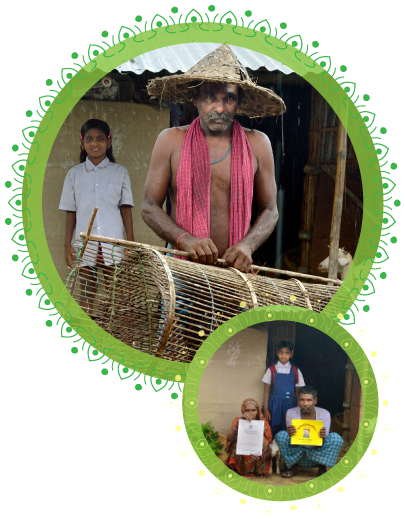
“This land helped me to get back the hope that we'll be able to take proper care of our granddaughter's education and we can feed her well."
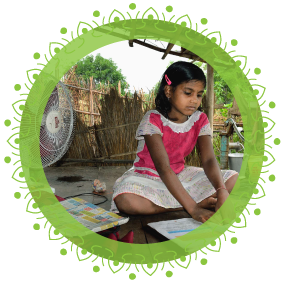
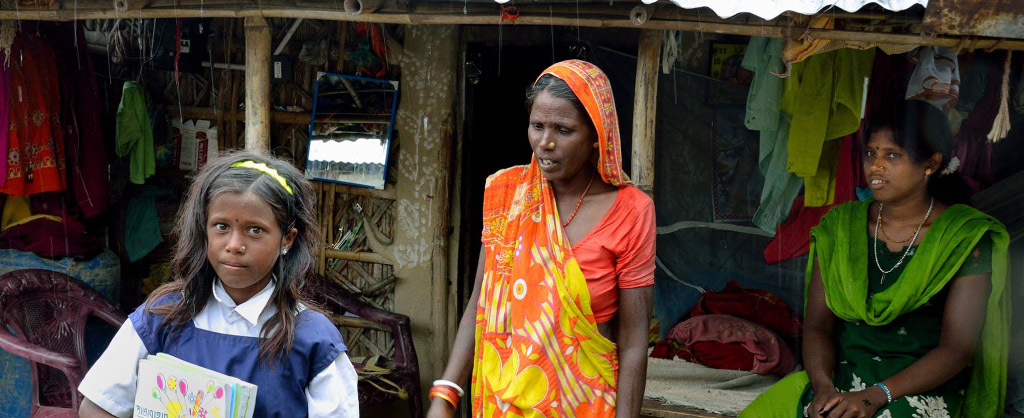
Mangiram and Chilia
Settled at Last
Less than one year ago, Chilia and Mangiram and their two youngest daughters were squatting on a river embankment with nothing to shield them from the elements except a plastic tarp strung between trees.
The family ate only twice a day. There was no money for medicine when the children fell ill. And there were constant fights with landowners whose property the family was squatting on.
“Our life was like running from one place to another,” said Chilia. “Wherever we tried to settle, we were chased by the landowner.”
“We are settled now, at last,” said Chilia.
Her family received legal control over a small plot of land in the hamlet of Harchandrapur where 114 other formerly landless families have also received micro-plots of land this year.
Mangiram, who migrates to construction jobs in Delhi or Punjab for six months each year, was finally able to put his construction skills to work for his own family. He built them a sturdy thatch and a bamboo hut and is now confident that his wife and children will be safe while he is away.
In their new micro-plot, Chilia raises chickens, ducks, and goats and has a thriving garden to feed her family. The family can eat three full meals a day. A few times a week those meals include fish or eggs — an unimaginable luxury just one year ago.
“Though our land is small, we have planted many vegetables and bananas and my daughters planted bamboo.”
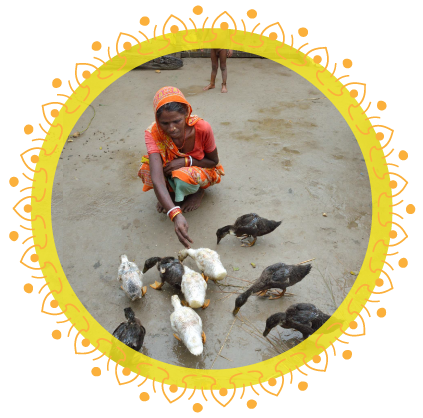
“Our life was like running from one place to another. Whenever we tried to settle we were chased by the landowner.”
